Keynote Speakers
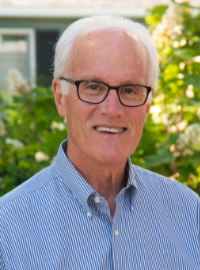 Kenneth E. Warner, PhD
Kenneth E. Warner, PhD- Kenneth E. Warner, PhD
- University of Michigan: Avedis Donabedian Distinguished University Professor Emeritus of Public Health; Professor Emeritus of Health Management & Policy; Dean Emeritus of Public Health
- Profile: sph.umich.edu
- Kenneth E. Warner is the Avedis Donabedian Distinguished University Professor Emeritus of Public Health and Dean Emeritus at the University of Michigan School of Public Health, where he was on the faculty from 1972-2017. He served as Dean from 2005-2010 and as a department chair from 1982-88 and 1992-95. An economist, Dr. Warner earned his A.B. degree from Dartmouth College and M.Phil. and Ph.D. degrees from Yale University.
- More about this presenter +
- Presented in over 300 professional publications, including 7 books, Dr. Warner’s research has focused on tobacco and health policy. Dr. Warner served as the World Bank’s representative to negotiations on the Framework Convention on Tobacco Control. He also served as the Senior Scientific Editor of the 25th anniversary Surgeon General’s report on smoking and health. During 2004-05 he was President of the Society for Research on Nicotine and Tobacco. He was a founding member of the Board of Directors of the Truth Initiative and was recently a member of the FDA Tobacco Products Scientific Advisory Committee. He is currently an elected member of the Board of Trustees of Northwestern Michigan College Dr. Warner’s honors and awards include: the Surgeon General’s Medallion, conferred by Dr. C. Everett Koop in 1989; election to membership in the National Academy of Medicine in 1996; a Luther L. Terry Award for Exemplary Leadership in Tobacco Control in 2003; the Alton Ochsner Award Relating Smoking and Disease in 2010; and the triennial Doll-Wynder Award from the Society for Research on Nicotine and Tobacco in 2017.
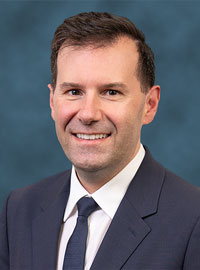 Brian King, PhD, MPH
Brian King, PhD, MPH- Brian King, PhD, MPH
- Food and Drug Administration: Director of the Center for Tobacco Products at the U.S. Food and Drug Administration (FDA)
- Profile: fda.gov
- Dr. Brian King was appointed Director of the Food and Drug Administration’s Center for Tobacco Products (CTP) in July 2022. In this position, Dr. King is responsible for assuring that CTP accomplishes its public health goals and for operationalizing the Center’s vision and mission as it implements the Family Smoking Prevention and Tobacco Control Act.
- More about this presenter +
- Dr. King has worked for nearly two decades to provide sound scientific evidence to inform tobacco control policy and to effectively communicate this information to key stakeholders, including decision makers, the media, and the general public. Prior to joining FDA, he served as the Deputy Director for Research Translation in CDC’s Office on Smoking and Health, and more recently as the Executive Editor of CDC’s Morbidity & Mortality Weekly Report Series. He has authored more than 200 scientific journal articles related to tobacco prevention and control, served as Senior Associate Editor for multiple U.S. Surgeon General’s Reports on tobacco, and was lead author of CDC’s 2014 evidence-based guide, “Best Practices for Comprehensive Tobacco Control Programs.” Dr. King holds a Ph.D. and M.P.H. in Epidemiology from the State University of New York at Buffalo.
Speakers: Wednesday
- Session one: “Very low nicotine content cigarettes: Regulatory considerations and empirical evidence”
- Session two: “Modeling the impact of very low nicotine content cigarette regulations”
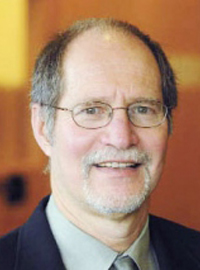 Neal Benowitz, MD
Neal Benowitz, MD- Neal Benowitz, MD
- University of California - San Francisco: Professor in Residence
- Profile: profiles.ucsf.edu
- about this presenter +
- Neal Benowitz, MD is a Professor of Medicine at the University of California, San Francisco. He has been conducting research at UCSF since 1973. His research focus is on the human pharmacology of nicotine in relation to pathogenesis of and individual differences in vulnerability to tobacco-related disease, and the use of pharmacologic data as a basis for public health policies to prevent and reduce such disease. He has served on a number of national and international committees addressing issues in tobacco-related diseases and smoking cessation, including several sponsored by the Institute of Medicine. He has authored over 500 publications, including a state-of-the-art review on nicotine addiction in the New England Journal of Medicine in June 2010.
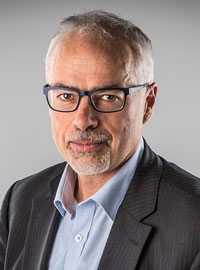 Tony Blakely, MBChB, MPH, PhD
Tony Blakely, MBChB, MPH, PhD- Tony Blakely, MBChB, MPH, PhD
- University of Melbourne: Affiliate Professor
- about this presenter +
- Tony is an epidemiologist and public health medicine specialist at the University of Melbourne since 2019, and previously at the University of Otago, Wellington, New Zealand. He leads research assessing the impacts of interventions on health gains, health inequalities, and health expenditure. He led the modelling for the New Zealand Government of its endgame policy (VLNC mandatory, 95% reduction in tobacco retail outlets and a tobacco free generation) that has subsequently passed into legislation. Tony is head of the Population Interventions Unit (and the Scalable Health Intervention Evaluation program) at the University of Melbourne. From 2023 to 2024, he is also Chair of the New Zealand Royal Commission on COVID-19 Lessons Learned.
 Dorothy Hatsukami, PhD
Dorothy Hatsukami, PhD- Dorothy Hatsukami, PhD
- University of Minnesota: Professor
- Profile: psychiatry.umn.edu
- about this presenter +
- Dorothy K. Hatsukami, Ph.D. is the Professor of Psychiatry and Behavioral Sciences, Forster Family Chair in Cancer Prevention and Associate Director of Cancer Prevention and Control of the Masonic Cancer Center at the University of Minnesota. Her areas of expertise include nicotine addiction and its treatment, and tobacco regulatory science assessing the toxicity, appeal and addictiveness of various tobacco products. She has over 500 peer reviewed publications, edited a book on tobacco and cancer and contributed to Surgeon General’s Reports. She has served on numerous scientific advisory boards or councils for U.S. government agencies, including NIDA, SAMSHA, ONDCP, Interagency Committee on Smoking and Health, and the FDA Tobacco Product Scientific Advisory Committees. She is currently a member of the World Health Organization Study Group on Tobacco Product Regulation and the National Cancer Institute, Board of Scientific Advisors. She was past president for the Society for Research on Nicotine and Tobacco and the College on Problems of Drug Dependence.
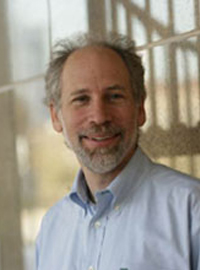 David Levy, PhD
David Levy, PhD- David Levy, PhD
- Georgetown University: Professor, Georgetown University Medical Center; CAsToR Principal Investigator
- Profile: georgetown.edu
- about this presenter +
- Dr. David Levy is PI for CAsToR at Georgetown University and co-Lead of Projects 1 - 3, and the Research Assessment and Input Development Core. He received his PhD in Economics from UCLA (USA), and is currently a Professor of Oncology at Georgetown University. He has published over 350 articles, in renowned journals such as the American Economic Review, BMJ, AJPH, JAMA, The Lancet, Tobacco Control, and PLOS Medicine. He has been principal investigator of grants from the CDC, WHO, the National Cancer Institute, and Bloomberg/Gates Foundation. Dr. Levy currently oversees the design and development of the SimSmoke tobacco policy simulation model, for which he has developed models for over 40 countries covering 85% of the world’s population, and has recently developed models of smokeless tobacco and e-cigarette use. In addition to being a principal investigator on the TCORS grant, he is currently a principal investor on a National Cancer Institute grant with the International Tobacco Control Policy Evaluation Project (theITCProject) in which he has developed models of e-cigarette use for Canada and England; and is a principal investigator in the National Cancer Institute CISNET Lung Group. He has recently published articles providing a public health framework and the Smoking and Vaping Model (SAVM) for evaluating e-cigarettes and showing the potential benefits of e-cigarettes. He has also developed a version of that model to examine the impact if cigarette companies had started marketing very low nicotine delivery cigarettes in earlier years when the risk of smoking had become clear.
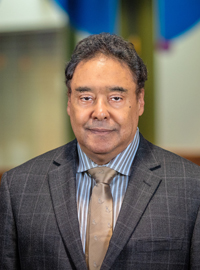 David Mendez, PhD
David Mendez, PhD- David Mendez, PhD
- University of Michigan: Professor of Health Management and Policy
- about this presenter +
- Dr. David Mendez is an Professor in the Department of Health Management and Policy at the University of Michigan. His research focuses on modeling the public health impact of potential tobacco and nicotine product regulations, including nicotine reduction, menthol bans, and trends of cigarette smoking cessation or switching to e-cigarettes. Dr. Mendez’s research also investigates the financial implications of these trends, with specific focus on tobacco control in the United States.
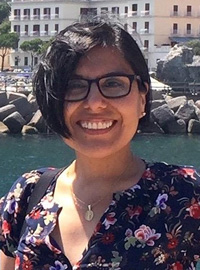 Esther Salazar, PhD
Esther Salazar, PhD- Esther Salazar, PhD
- Food and Drug Administration: Lead Mathematical Statistician, Center for Tobacco Products, Office of Science
- about this presenter +
- Dr. Esther Salazar is a Senior Mathematical Statistician in the Center for Tobacco Products (CTP) at the U.S. Food and Drug Administration (FDA). She received her MS and PhD in Statistics from the Federal University of Rio de Janeiro. She also completed post-doctoral training in the Department of Statistical Science at Duke University and the Statistical and Applied Mathematical Sciences Institute (SAMSI), in North Carolina. Prior to joining the FDA, Dr. Salazar was a Research Assistant Professor in the Electrical and Computer Engineering Department at Duke University. Her research activities focus on health effects of tobacco product use, population modeling, survey data analysis, text mining, machine learning techniques for big data, and Bayesian analysis. At the FDA, Dr. Salazar has been actively collaborating with modeling and simulation activities that can be used to assess the health impact of tobacco policies and tobacco product market authorization in the U.S.
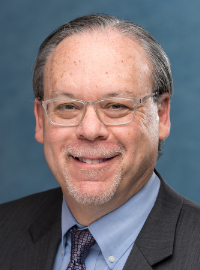 Mitch Zeller, JD
Mitch Zeller, JD- Mitch Zeller, JD
- Qnovia, Inc.: Policy and Regulatory Strategy Advisor; Retired, Former Director of the Center for Tobacco Products at the U.S. Food and Drug Administration (FDA)
- about this presenter +
- Mitch Zeller, J.D., retired from federal service in April 2022 and recently joined Qnovia, Inc., a pharma company developing inhaled therapeutics across a variety of indication areas, as a policy and regulatory strategy advisor. He was the director of the FDA’s Center for Tobacco Products from March 2013 through April 2022. The mission of CTP—established by enactment of the 2009 Family Smoking Prevention and Tobacco Control Act—is “to make tobacco-related death and disease part of America’s past, not America’s future, and, by doing so, ensure a healthier life for every American family.” As Center Director, Zeller led FDA’s efforts to use the tools of product regulation to reduce disease and death from tobacco use and bring previously unavailable information about its dangers to light. Zeller, a graduate of Dartmouth College and the American University Washington College of Law, worked on FDA issues from 1982 until his retirement in 2022. He began his career as a public interest attorney in 1982 at the Center for Science in the Public Interest (CSPI). In 1988, Zeller left CSPI to become counsel to the Human Resources and Intergovernmental Relations Subcommittee of the House of Representatives Government Operations Committee where he conducted oversight of enforcement of federal health and safety laws. In 1993, Zeller joined the staff of then-FDA Commissioner Dr. David Kessler, M.D. What began as a two-week assignment by Kessler in 1994 to examine the practices of the tobacco industry led to his serving as associate commissioner and director of FDA’s first Office of Tobacco Programs. Instrumental in crafting the agency’s 1996 tobacco regulations, Zeller also represented FDA before Congress, federal and state agencies. Zeller also served as an official U.S. delegate to the World Health Organization (WHO) Working Group for the Framework Convention on Tobacco Control. In 2000, Zeller left FDA to continue his work for tobacco control as executive vice president of the American Legacy Foundation. His responsibilities there included marketing, communications, strategic partnerships, and creating the foundation’s first Office of Policy and Government Relations. In 2002, Zeller joined Pinney Associates where, as senior vice president, he provided strategic planning and communications advice on domestic and global public health policy issues involving the treatment of tobacco dependence and the regulation of tobacco products and pharmaceuticals. He left Pinney Associates in 2013 upon his return to FDA as Center Director.
Speakers: Thursday
- Session three: “Flavor restrictions: Regulatory, empirical, and modeling considerations”
- Session four: “Modeling the impact of regulations restricting flavors in cigarettes and cigars”
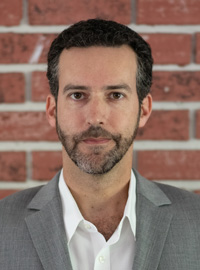 Ross Hammond, PhD
Ross Hammond, PhD- Ross Hammond, PhD
- Brookings Institution: Director, Center on Social Dynamics and Policy
- Washington University in St. Louis: Associate Professor
- about this presenter +
- Ross Hammond is the Betty Bofinger Brown Professor of Public Health at Washington University in St. Louis, as well as Director of the Center on Social Dynamics & Policy and Senior Fellow in Economics at The Brookings Institution. With over 25 years of experience in complex systems science methodologies, Hammond brings his expertise in these approaches to problems in social science, public policy, and public health. Hammond’s research applies complex systems modeling tools to generate new insights into the social dynamics that drive many difficult policy problems, as well as to identify potential leverage points or windows for intervention. Current topics include tobacco control, obesity prevention, health disparities, pandemic containment, implementation science, and the food system. Professor Hammond is an advisory Special Government Employee at the FDA’s Center for Tobacco Products, serves on the Food and Nutrition Board of the National Academies of Science, and is chairing a working group at the USDA. He previously served as a DHHS-appointed Advisory Council on Minority Health and Health Disparities at NIH, on several National Academy of Sciences consensus panels, and on the Lancet Commission on Obesity. Hammond holds additional academic appointments at the Santa Fe Institute and the Australian National University.
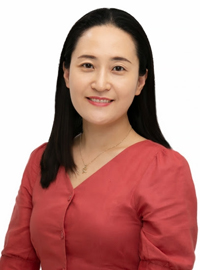 Jihyoun Jeon, PhD, MS
Jihyoun Jeon, PhD, MS- Jihyoun Jeon, PhD, MS
- University of Michigan: Associate Research Scientist
- Webpage: sph.umich.edu
- about this presenter +
- Dr. Jeon is interested in developing models based on biological and clinical mechanisms and statistical methods to evaluate the impact of risk factors on various cancers and improve cancer outcomes. These modeling efforts aim to address important practical public health and clinical questions, such as the efficacy of screening to reduce cancer incidence/mortality and assist public health policymakers in their decision process. Particularly, Dr. Jeon’s current research focuses on understanding the underlying mechanisms of the natural history of cancer and developing innovative methodologies and computational tools to accurately predict the risk of lung cancer and colorectal cancer by taking into account personal histories of environmental exposures and biological and genetic factors. Dr. Jeon has been a key investigator of the Cancer Intervention and Surveillance Modeling Network Lung Working Group (CISNET LWG) since 2008, working on developing and managing CISNET’s Smoking History Generator (SHG) and its data sources. Dr. Jeon has also expanded her modeling expertise to tobacco regulatory science. Dr. Jeon is co-Lead of the Center for the Assessment of Tobacco Regulations (CAsToR) - Data Analysis and Dissemination Core funded by FDA-NIH TCORS 2.0 and has established the center infrastructure to process multiple cross-sectional and longitudinal datasets to support numerous center projects. Dr. Jeon has extensive experience with population data analysis, simulation modeling, and statistical analysis to explore various public health problems on tobacco and its related diseases.
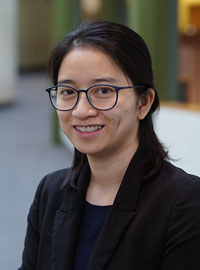 Thuy Le, PhD
Thuy Le, PhD- Thuy Le, PhD
- University of Michigan: Assistant Research Scientist
- about this presenter +
- Dr. Le is interested in mathematical modeling for cancer and tobacco research, and machine learning applications in tobacco regulatory science. Dr. Le has developed mathematical models to evaluate the benefits and harms of breast cancer mammography and predict the number of white blood cells during acute lymphoblastic maintenance therapy. Dr. Le has recently focused on employing mathematical models to quantify the burden of menthol cigarettes on public health and estimate the smoking cessation rate. In addition, Dr. Le is working on applying machine learning techniques to predict and understand smoking behaviors.
 David Levy, PhD
David Levy, PhD- David Levy, PhD
- Georgetown University: Professor, Georgetown University Medical Center; CAsToR Principal Investigator
- Profile: georgetown.edu
- about this presenter +
- Dr. David Levy is PI for CAsToR at Georgetown University and co-Lead of Projects 1 - 3, and the Research Assessment and Input Development Core. He received his PhD in Economics from UCLA (USA), and is currently a Professor of Oncology at Georgetown University. He has published over 350 articles, in renowned journals such as the American Economic Review, BMJ, AJPH, JAMA, The Lancet, Tobacco Control, and PLOS Medicine. He has been principal investigator of grants from the CDC, WHO, the National Cancer Institute, and Bloomberg/Gates Foundation. Dr. Levy currently oversees the design and development of the SimSmoke tobacco policy simulation model, for which he has developed models for over 40 countries covering 85% of the world’s population, and has recently developed models of smokeless tobacco and e-cigarette use. In addition to being a principal investigator on the TCORS grant, he is currently a principal investor on a National Cancer Institute grant with the International Tobacco Control Policy Evaluation Project (theITCProject) in which he has developed models of e-cigarette use for Canada and England; and is a principal investigator in the National Cancer Institute CISNET Lung Group. He has recently published articles providing a public health framework and the Smoking and Vaping Model (SAVM) for evaluating e-cigarettes and showing the potential benefits of e-cigarettes. He has also developed a version of that model to examine the impact if cigarette companies had started marketing very low nicotine delivery cigarettes in earlier years when the risk of smoking had become clear.
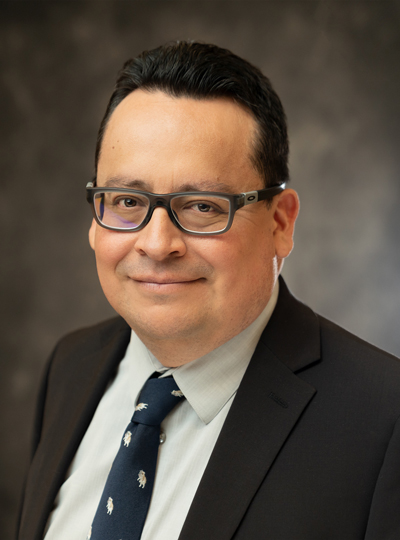 Rafael Meza, PhD
Rafael Meza, PhD- Rafael Meza, PhD
- University of Michigan: Professor, Epidemiology; Professor of Global Public Health; Co-Leader, Cancer Epidemiology and Prevention Program, UM Rogel Cancer Center; CAsToR Principal Investigator
- Profile: sph.umich.edu
- about this presenter +
- Dr. Meza is a Distinguished Scientist at the British Columbia Cancer Research Institute and Distinguished Scholar in Lung Cancer Screening and Prevention at the University of British Columbia. Dr. Meza's research interests lie at the interface of epidemiology, biostatistics and biomathematics. He is an expert in lung cancer epidemiology and prevention and tobacco epidemiology and control. The goal of his research program is to characterize the impact of disease prevention and control interventions, informing stakeholders and policy makers as to the most effective and efficient ways to improve population health. In particular, he is interested in cancer risk assessment and the analysis of cancer epidemiology data using mechanistic models of carcinogenesis. He is also interested in the mathematical modeling of chronic and infectious disease dynamics and its applications in disease prevention public health policy design. Dr. Meza is Principal Investigator of the Center for the Assessment of Tobacco Regulation (CAsToR) and Coordinating Principal Investigator of the Cancer Intervention and Surveillance Modeling Network (CISNET) Lung Working Group. Prior to joining BC Cancer, Dr. Meza was Professor of Epidemiology and Global Health at the University of Michigan and co-Leader of the Cancer Control and Population Sciences of the Rogel Cancer Center.
 Brian Rostron, MA, MPH, PhD
Brian Rostron, MA, MPH, PhD- Brian Rostron, MA, MPH, PhD
- Food and Drug Administration: Epidemiologist, Center for Tobacco Products, Office of Science
- about this presenter +
- Dr. Brian Rostron is a Health Scientist in the Epidemiology Branch 1 in the Office of Science of FDA’s Center for Tobacco Products. He holds an MA and PhD in demography and an MPH in Epidemiology from the University of California, Berkeley. He was a fellow at the National Center for Health Statistics for two years and joined FDA/CTP in 2010, where he has worked in Statistics and Epidemiology Branches in the Office of Science. He has worked on a variety of research projects at CTP including survey and biomarker data analysis, as well as estimation and modeling work on flavored cigars and nicotine reduction.
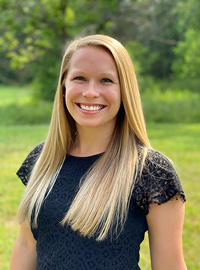 Liane Schneller, MS, PhD
Liane Schneller, MS, PhD- Liane Schneller, MS, PhD
- Roswell Park Comprehensive Cancer Center:
- about this presenter +
- Liane Schneller is a Research Scientist at Roswell Park Comprehensive Cancer Center in Buffalo, NY. She received an MS in Natural Sciences (2014) and a PhD in Cancer Sciences (2019) through the Roswell Park Graduate Division at the University at Buffalo, the State University of New York. Her graduate research focused on the engineering of cigarettes, including cigarette filter ventilation and delivery methods of menthol in cigarettes. Dr. Schneller went on to complete a 1-year TL-1 postdoctoral fellowship focused on National, Regional and Local Database Analytics in the Clinical and Translational Science Institute at the University of Rochester Medical Center. She was the TL-1 Post-Doctoral Representative, and has received the NIH Loan Repayment Plan for Clinical Research. Dr. Schneller is a part of the study team for Western New York-based Center for Research on Flavored Tobacco Products (CRoFT). Her research interests include policy impact analysis, product design influence on use behavior, and youth and young adult nicotine and tobacco use behaviors.
 Andrea Villanti, PhD, MPH
Andrea Villanti, PhD, MPH- Andrea Villanti, PhD, MPH
- : Associate Professor, Department of Health Behavior, Society and Policy
- Webpage: sph.rutgers.edu
- about this presenter +
- Andrea Villanti, PhD, MPH, is Deputy Director of the Rutgers Center for Tobacco Studies and Associate Professor in the Department of Health Behavior, Society and Policy at the Rutgers School of Public Health. She also holds an adjunct faculty appointment in the Department of Psychiatry at the University of Vermont Larner College of Medicine. Dr. Villanti’s primary focus is on young adult tobacco use, including predictors and patterns of use and interventions to reduce tobacco use in young adults. She also has expertise in population surveillance of tobacco and substance use and translational research to improve substance use-related policy and program decision-making, including tobacco regulatory science. She received her doctorate in social and behavioral sciences from the Johns Hopkins University and her master’s in public health degree from Columbia University.
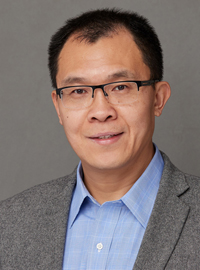 Yong Yang, PhD
Yong Yang, PhD- Yong Yang, PhD
- University of Memphis: Assistant Professor
- about this presenter +
- Yong Yang, PhD, is an Associate Professor at the School of Public Health at the University of Memphis. His research interests include the study of neighborhood and health behaviors, aging and mental health, tobacco regulatory science, and the application of systems science methods in the field of public health. He obtained his PhD in Health Geography from the University of Southampton and completed postdoctoral training at the University of Michigan.
Panelists and Moderators: Thursday
- Where should we go from here?
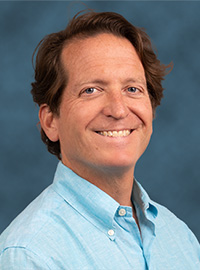 Matthew Farrelly, PhD
Matthew Farrelly, PhD- Matthew Farrelly, PhD
- Food and Drug Administration: Director, Office of Science, Center for Tobacco Products
- about this presenter +
- Dr. Matthew Farrelly was appointed as Director of the Office of Science at the Center for Tobacco Products (CTP) of the U.S. Food and Drug Administration in March 2023. In this position, Dr. Farrelly oversees all aspects of the science related to tobacco products, their use, and the resulting morbidity and mortality that we use in making regulatory decisions to ensure they will have the greatest impact on improving public health. Dr. Farrelly has worked extensively in the field of tobacco and nicotine science for more than 25 years, and is an internationally recognized expert with proven leadership and organizational management skills. He has led or been involved with numerous scientific endeavors related to tobacco control policies and regulatory approaches, including those related to graphic health warning labels, excise taxes, smoke-free policies, quitlines, state tobacco control programs, retail advertising, and flavored tobacco products. He has also extensively researched the influence of mass reach health campaigns, including FDA’s The Real Cost. Dr. Farrelly also has a dedicated passion and vision for scientific innovation, including use of social media to recruit hard-to-reach populations, address-based sampling, redirected inbound calling, panel surveys, mixed mode data collection, and the capture of biometric data with wearable sensors. He has authored or co-authored over 120 articles in the peer-reviewed scientific literature, which have been cited over 10,000 times. Dr. Farrelly holds a B.A. in Economics and French from Indiana University, and Ph.D. in Economics from the University of Maryland at College Park.
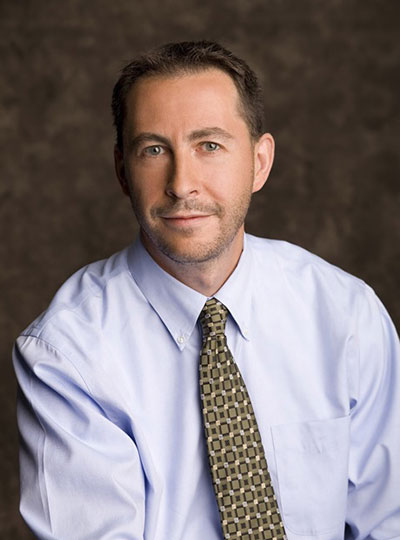 Andrew Hyland, PhD
Andrew Hyland, PhD- Andrew Hyland, PhD
- Roswell Park Comprehensive Cancer Center:
- Webpage: roswellpark.org
- about this presenter +
- Dr. Andrew Hyland has been a leader in tobacco control research for more than 25 years, conducting numerous peer-review funded grants and contracts that are informing policy and practice. He has more than 380 peer review papers, previously served as the Deputy Editor for the leading journal in the field Tobacco Control, and he is widely recognized nationally and internationally for his expertise. As the Chair of the Department of Health Behavior at Roswell Park Comprehensive Cancer Center, he directs a research program focused on providing an evidence base to inform interventions to reduce the disease burden caused by tobacco by as much and as quickly to as many people as possible. He serves as the Scientific Principal Investigator of the Population Assessment of Tobacco and Health (PATH) study, which is supported by the National Institute on Drug Abuse and the Food and Drug Administration to study longitudinally more than 46,000 adults and children nationally over a 14-year period to understand changes in tobacco use behaviors and health to inform FDA tobacco regulatory considerations. Dr. Hyland is a Principal Investigator of the International Tobacco Control Policy Evaluation P01 grant that evaluates the impact of national and sub-national tobacco control policies on behavior. He also serves as the Principal Investigator of the New York State Quitline, which helps more than 30,000 tobacco users with the efforts to stop using tobacco each year. Dr. Hyland has taken on other important policy relevant topics in tobacco control research, including identifying strategies to boost the reach and efficacy of stop smoking intervention, assessing the effectiveness of mass media anti-smoking campaigns, evaluating the impact of changes in product design and packaging, and surveillance of tobacco use, the tobacco-affiliated businesses, and other tobacco-related issues.
 Scott Leischow, PhD
Scott Leischow, PhD- Scott Leischow, PhD
- Arizona State University: Research Professor, College of Health Solutions
- Webpage: search.asu.edu
- about this presenter +
- Scott J. Leischow joined Arizona State University in June 2017, and until he retired in 2022 was a tenured Professor and the Executive Director of Clinical and Translational Science. He is currently a Research Professor in the College of Health Solutions. Dr. Leischow developed and implemented the Affinity Network and Translational Teams (ANTT) initiative that fosters transdisciplinary collaboration, as well as the Clinical and Community Translational Science (CCTS) initiative that fosters expanded and improved translational research. Prior to ASU, Dr. Leischow was at the Mayo Clinic Arizona from 2012-2017, where he led the Research on Health Equity and Community Health (REACH) Program and co-led cancer prevention and control within the Mayo Clinic Cancer Center. He was formerly an Associate Director at the University of Arizona Cancer Center and also served as Chief of the Tobacco Control Research Branch at the National Cancer Institute within National Institutes of Health and Senior Advisor for Tobacco Policy in the Office of the Secretary of the U.S. Department of Health and Human Services. Dr. Leischow completed his doctorate in Health Education from the University of Maryland, and a postdoctoral fellowship in Behavioral Pharmacology from Johns Hopkins University. Most of the work implemented by Dr. Leischow is translational in nature and dedicated to moving research into practice and policy. His research and publications focus on pharmacologic and behavioral treatments for tobacco dependence, tobacco regulatory science, and systems and network approaches to population health. Dr. Leischow has conducted numerous clinical studies over the past 25 years investigating the safety and efficacy of potential medications for smoking cessation, and many of his 100+ publications are in that area. In addition, Dr. Leischow has made significant contributions to telehealth behavioral interventions for smoking cessation. Dr. Leischow created and implemented the Arizona Smokers Helpline, the third state quitline in the U.S. While at NCI and DHHS, he also played a leadership role in the development and implementation of the national smoking cessation quitline network, national smoking cessation website (smokefree.gov) and the national toll free quitline number (1-800-QUITNOW). Dr. Leischow has also been actively involved in research to characterize the role of social and organizational networks for understanding collaboration, knowledge flow, and dissemination & implementation of evidence-based practices, primarily to improve tobacco control. Such network research initiatives have been implemented in multiple environments, including within an international network of tobacco quitlines, between government organizations, within an indigenous community, across African countries, and between cancer research organizations. Dr. Leischow has received multiple awards, including the NIH Director's Award, and he is past president of the Society for Research on Nicotine and Tobacco (SRNT).
 Robin J. Mermelstein, PhD
Robin J. Mermelstein, PhD- Robin J. Mermelstein, PhD
- University of Illinois - Chicago: LAS Distinguished Professor and IHRP Director; Clinical and Community & Prevention Research
- Webpage: psch.uic.edu
- about this presenter +
- Robin Mermelstein, PhD is Distinguished Professor, Department of Psychology, the Director of the Institute for Health Research and Policy at the University of Illinois at Chicago, and the Co-Director of the Center for Clinical and Translational Science (CTSA award) at UIC. Her research has focused on understanding the etiology and progression of tobacco use in adolescents and young adults, in developing interventions to reduce tobacco use and increase cessation in both adolescents and in young adults, and in translating research into practice and policy. She has been funded by the U.S. National Institutes of Health as a Principal Investigator continuously on tobacco-related research grants since 1987. Much of her research has addressed the question of adolescent and young adult tobacco use; understanding the development and trajectories of tobacco use; using ecological momentary assessment to examine the immediate contexts surrounding smoking and to understand, in-depth a variety of combinations of tobacco use, with an emphasis over the past several years on use of both e-cigarettes and cigarettes, and transitions between products, as well as co-use with cannabis. She has served on, and chaired, multiple national working groups addressing methodological questions related to studying adolescent and young adult tobacco use and was a member of the IOM Committee and co-author of its report on the Public Health Implications of Raising the Minimum Age of Access for Tobacco Use. As one of the Principal Investigators of the Coordinating Center (CASEL; Center for Coordination of Analytics, Science, Enhancement and Logistics) for the Tobacco Centers of Regulatory Science (TCORS), Dr. Mermelstein also has a broad picture of and access to some of the most recent developments in the assessment of complex patterns of tobacco product use and responsible for the scientific lead integrating tobacco regulatory science across multiple funded centers. She is a past President of the Society for Research on Nicotine and Tobacco.